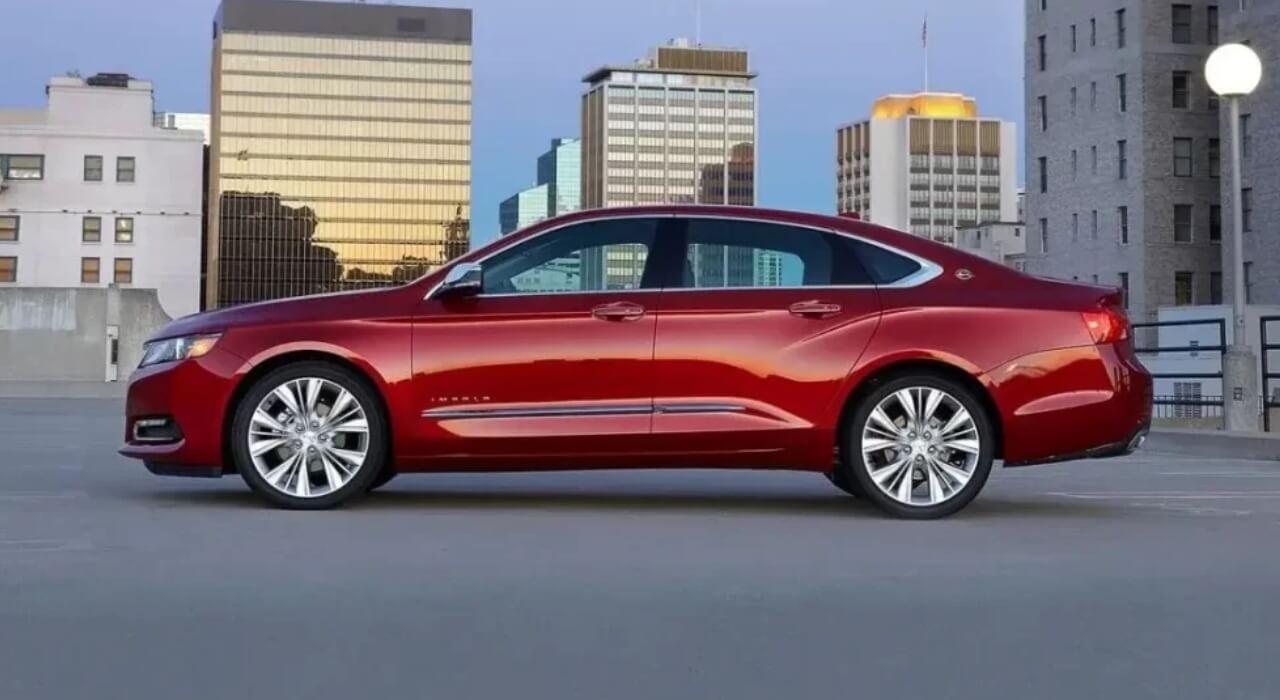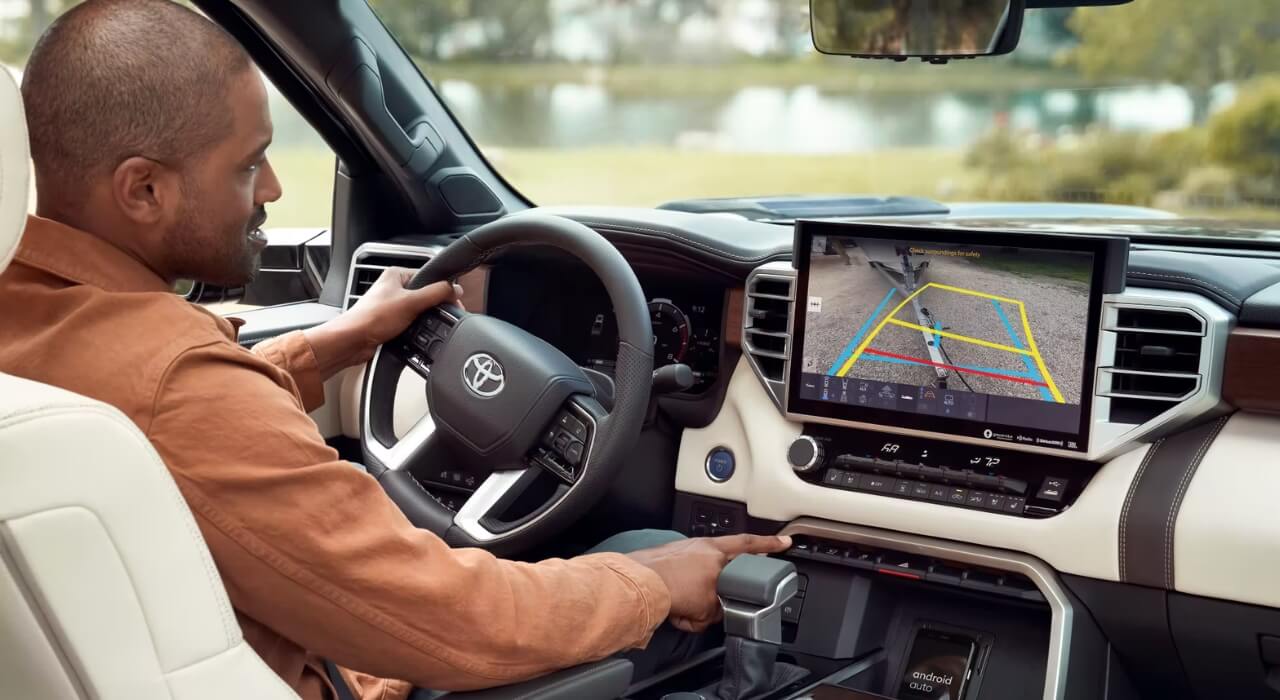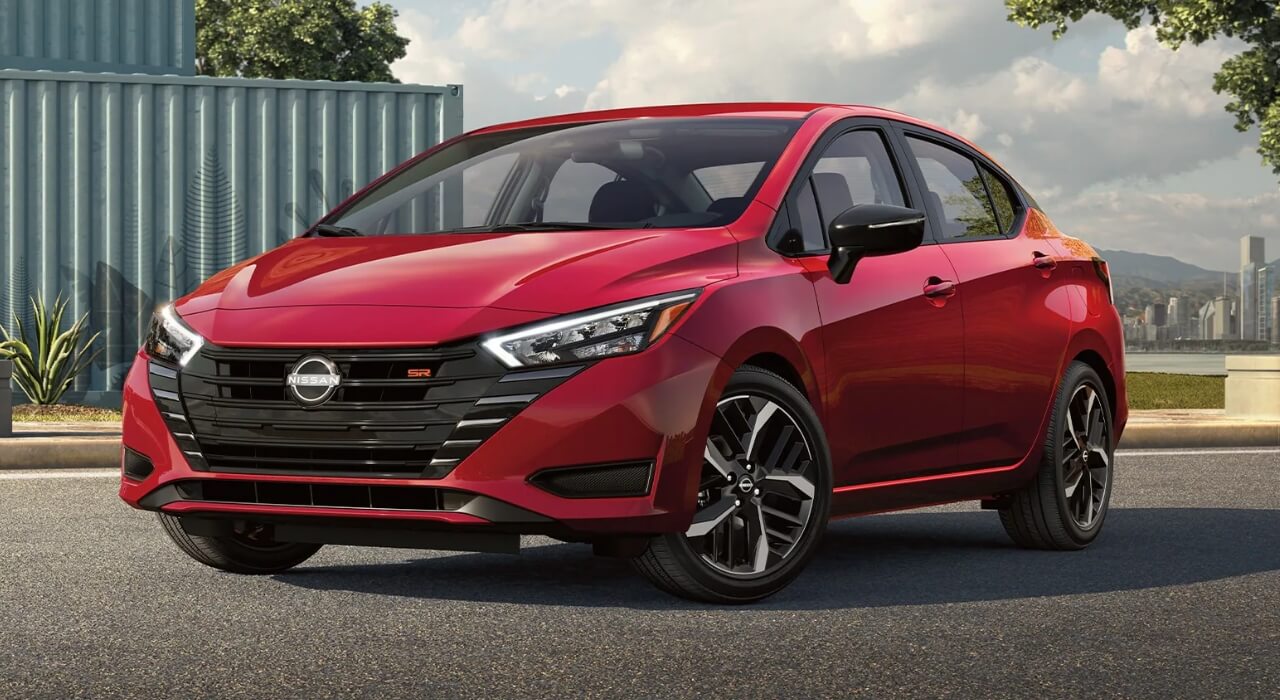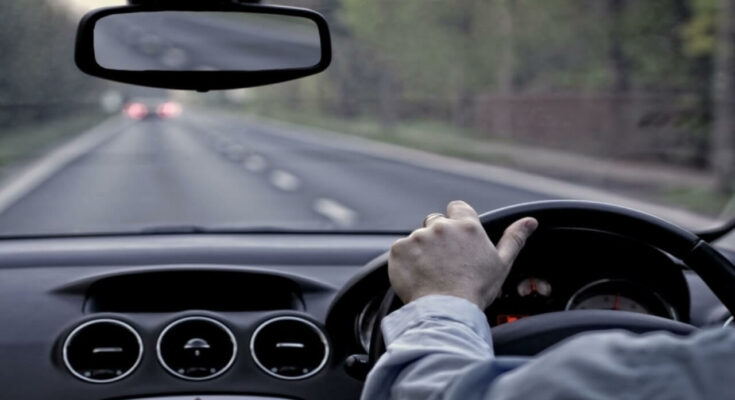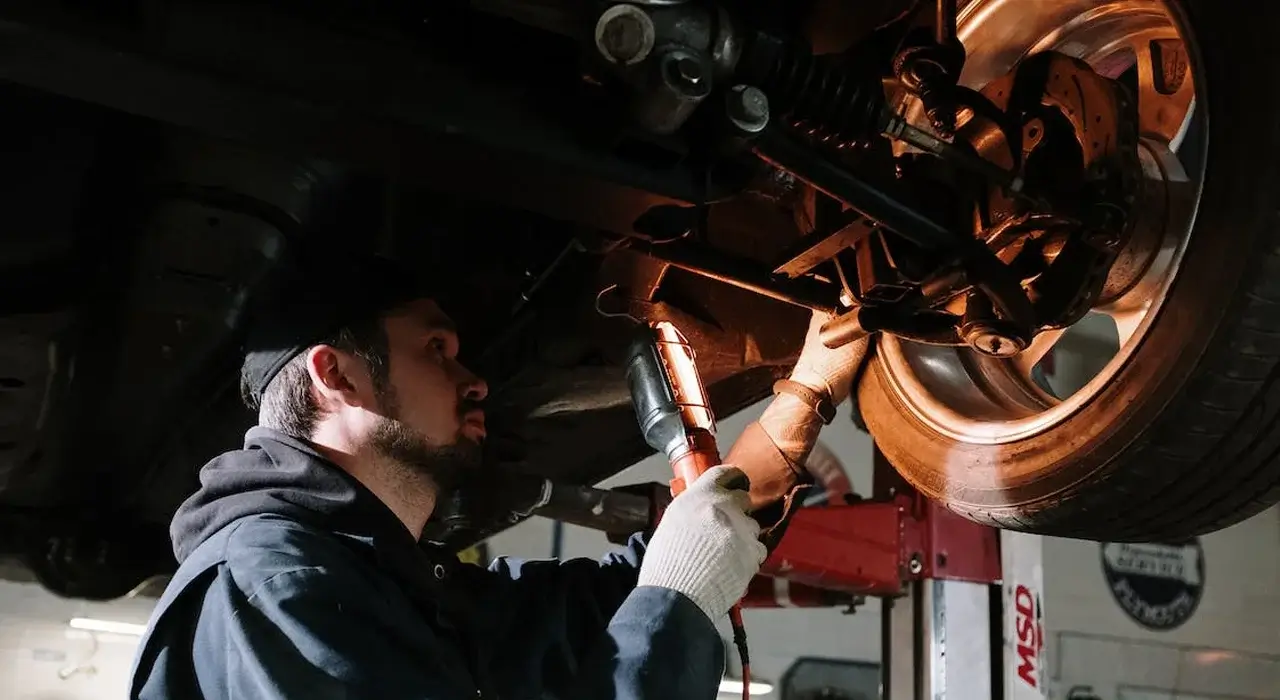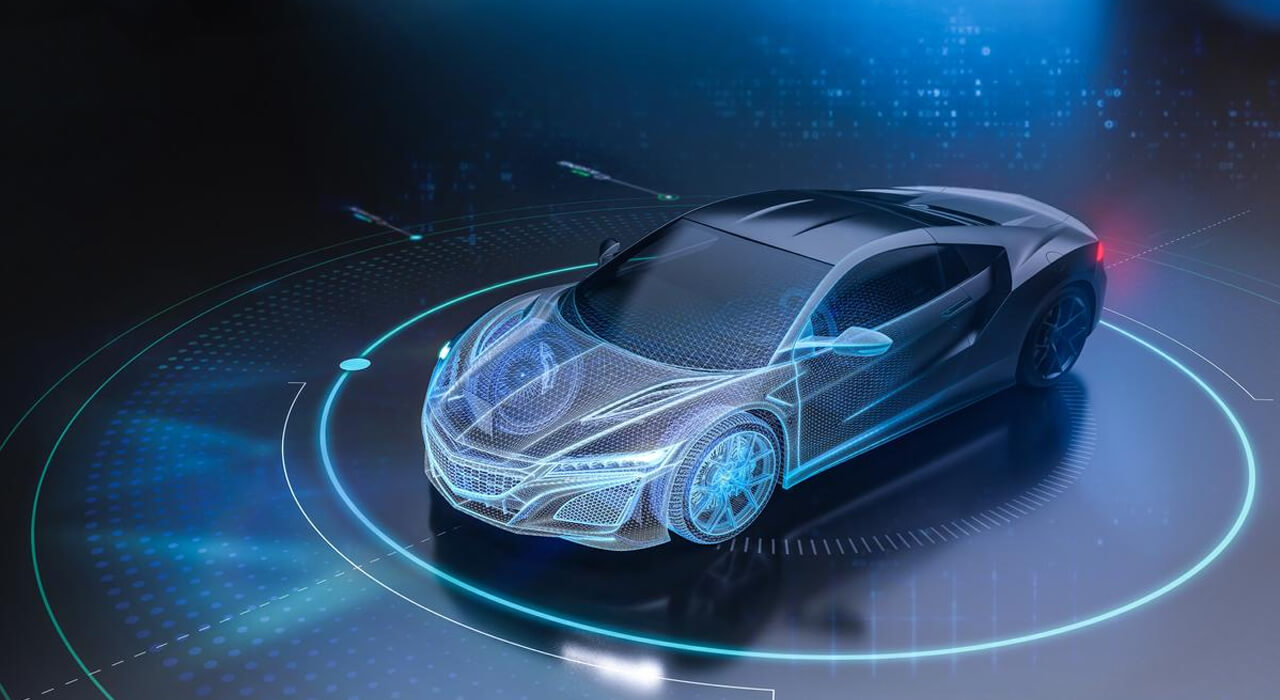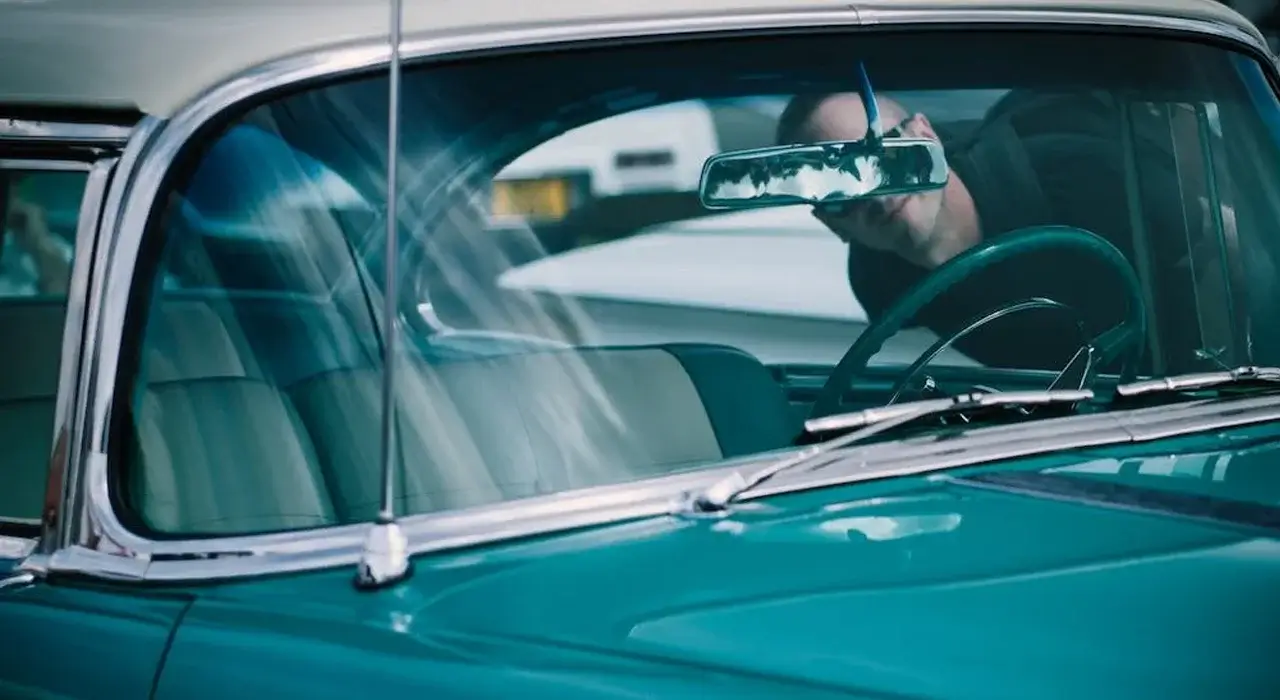Why my car shakes when braking is the most frequently asked question among motorists. It can worst and scary experience for anyone. Any problem with a vehicle’s braking system poses a safety hazard.
While applying your foot on the brakes, you’re definitely expecting a smooth and controlled stop for your car. However, if you feel vibrations or jolts in the steering wheel or brake pedal, something is wrong.
This problem can be caused by a variety of factors, including worn brake pads, warped brake discs, or suspension problems. We suggest you fix this issue early to avoid any serious damage.
Also, take the help of a car mechanic if you are not able to find the solution or the car starts to shake under braking. Any problem related to the brake system makes any driver nervous.
Fortunately, problems caused by “car jerk under braking” can be fixed quickly and relatively cheaply. This article is about the movement of the car when braking, the most likely explanations, and possible solutions.
How Do Car Braking System Work?
Most modern automobiles have four-wheel brakes operated by a hydraulic system. Brakes can be disc or drum brakes. The front brakes have a major role in stopping the vehicle as compared to brakes so front brakes are most used in braking operation.
Many cars, therefore, have disc brakes at the front and drum brakes at the rear, which are usually more efficient. Disc brake systems are used on some expensive or high-performance vehicles, while drum systems are used on some older or smaller vehicles.
When the brake pedal is pressed, brake shoes with friction linings press against the inner surface of the drum, generating the braking force. This frictional effect reduces the rotation of the brake drum; Therefore, your vehicle’s speed will be reduced.
Top Tips On How To Fix A Car Shaking When Braking
Experiencing jerks when braking can be worrying and may indicate a larger problem with your vehicle. Identifying and fixing the root cause of the problem is vital to your safety on the road.
Here are some potential solutions to fix vehicle movement when braking along with the associated costs.
A. Replace both brake pads
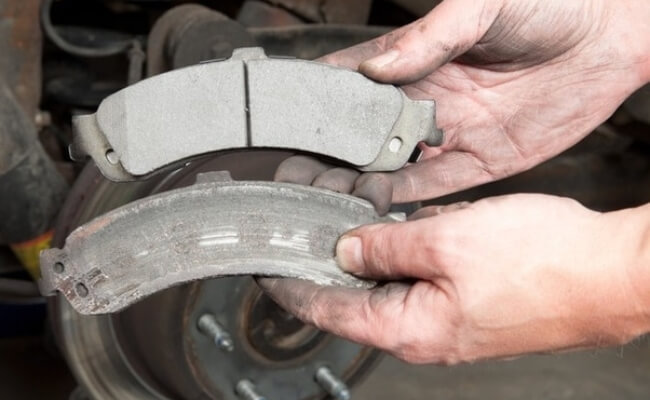
If the pads are too low or worn unevenly, you may notice a shake when you stop. In both cases the solution is simple. Never replace just one pad as this will result in uneven braking; always replace pads in pairs.
Also Check:
B. Check Wheel Bearings
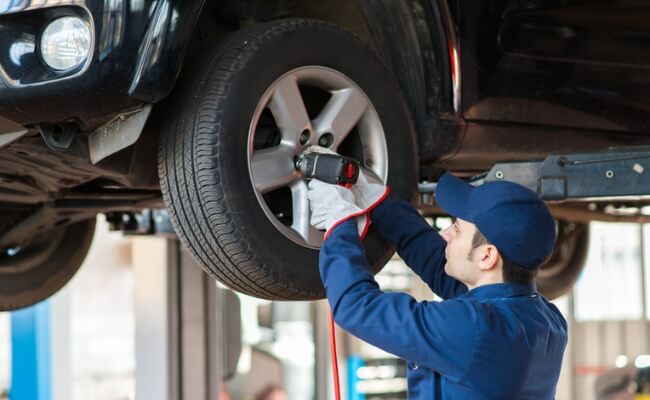
If your brake pads are still in good condition, it may be worth inspecting your wheel bearings for wear or damage. Bad bearings can also cause your car to shake under braking. Therefore, checking both bearings can help pinpoint underlying issues quickly.
Wheel bearing replacements typically cost between $100 and $300 per bearing, depending on the make and model.
C. Use Good Quality Tires
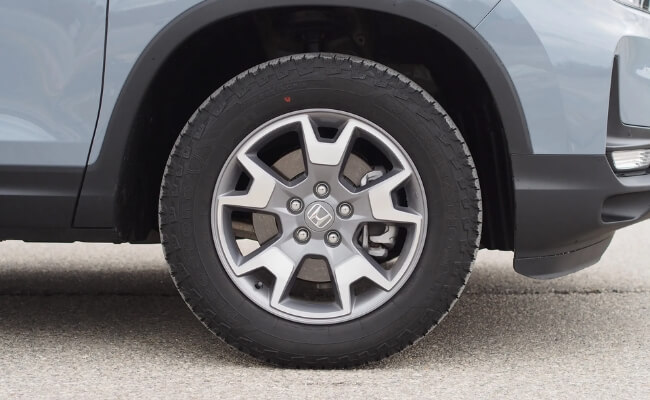
Tire problems can be prevented by purchasing good quality tires and having them checked thoroughly when your car or truck goes in for preventative maintenance. It’s best to change your tires every 5000 to 7500 miles, but you should check the mileage with your owner’s manual.
D. Align Wheels
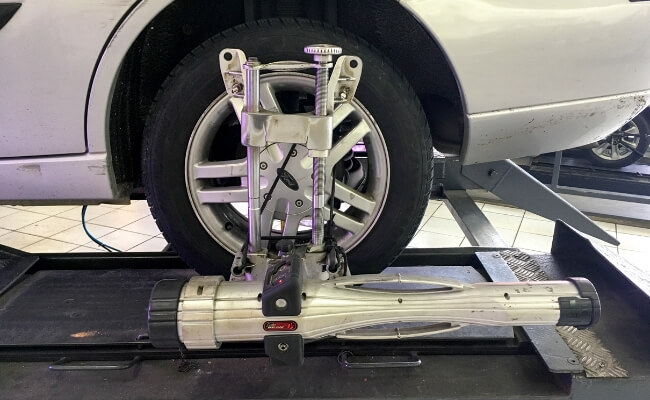
Misaligned wheels cause pull symptoms, often manifested as vehicle judder under braking. Be sure to check the alignment of all four wheels before attempting any other repair as this is by far one of the most cost-effective solutions you can consider.
Top Common Reasons Why Does Car Shake When Braking
An unstable car is one of the most common problems car owners face, especially when it comes to high and low-speed driving. Fortunately, a little attention to car maintenance can go a long way in preventing this annoying problem.
Also Check:
There are many reasons why the car shakes when braking at high speeds. Therefore, it is important to pay attention to certain symptoms of the problem. Here is the top cause of car shaking when braking
1. Worn or Damaged Brake Pads
Brake pads play an important role in stopping your car when passing it and its work largely depends on the effects of friction. This leads to wear over time, which can cause the brakes to wobble, squeak, or even squeak when braking at high speeds.
Dirt or debris can also become lodged in the brake pads, causing loss of traction and vibration.
2. Warped or Faulty Rotor
The most common way your car shakes under braking is probably a warped, damaged, or worn brake rotor. The brake discs are located between the brake pads and are attached to the wheel hub assembly.
Friction between the rotor and the crush pads contributes to vehicle deceleration. These brake discs can warp, which can cause vibrations when braking.
3. Bad Wheel Alignment
If the steering wheel wobbles when you brake, it can be a sign that your wheels are misaligned. Vehicles with poor wheel alignment can lead to premature tire wear and damage to critical suspension components.
Over time, other suspension components such as tie rods, ball joints, and wheel bearings can wear out due to normal wear and tear. When all of these components wear out, your car may vibrate when you brake.
4. Worn Suspension Components
A few times, worn suspension components also create messes of shudder under braking. The sensation can be felt in the steering wheel and/or in the brake pedal.
Also Check:
For example, in a strut mount, the brake rotor is attached to the steering knuckle, which in turn is attached to the strut. Therefore, problems with the strut assembly when braking can cause jerkiness.
5. Uneven Tire Pressure
Tire pressure affects your car’s performance and uneven tire pressure can be a cause of brake shake. Uneven tire pressure can be caused by a number of factors, such as air leaks or imbalanced wheel alignment. Regularly checking and adjusting tire pressure can help prevent this problem.
6. Loose Wheel Bearings
There is a wheel bearing behind each wheel of your car. Each wheel bearing allows for the rotation of a wheel hub, which serves as the mounting point for the wheel and tire as the vehicle travels down the road.
Since the wheel hub also serves as the mounting location for the disc brake, a loose wheel bearing can cause excessive lateral runout. This can cause juddering when braking.
7. Frozen Brake Caliper
Although not as common, it is important to diagnose a stuck caliper immediately as it can affect the safety of your vehicle. Calipers are a vital part of your braking system and should not be ignored.
The caliper may be binding and holding the rotor, or it may be open and not holding the rotor at all. When you do this, you are applying uneven pressure to the rotors, causing your car or truck to shake.
8. Damaged Parts
Some of the faulty parts, like control arm bushings, ball joints, and rotors, are a big reason for the high movement of suspension parts, causing your car to shake.
Replacing loose or damaged parts by a professional mechanic will restore the stability of your vehicle’s suspension system.
Also Check:
Is It Ok To Ride A Car Shaking When Braking?
Driving a car that shakes when you brake is usually not safe. It is not only annoying when your car shakes when you brake, but also affects the handling of your car and makes safe driving difficult.
Although this is a very simple problem that can be diagnosed and fixed by a qualified auto repair shop, it should be considered a serious problem. By following our tips, you’ll be better equipped to avoid car jolts during braking and feel confident in everyday driving.
Top FAQs About Car Shakes When Braking And Stopped
Why does my car shake when I slow down or brake?
If your wheels are out of balance, this can be one of the reasons why your steering wheel is shaking. This symptom can get worse when driving your vehicle at high speed as the tremor is transmitted to the steering wheel.
In addition, if the brake discs are unbalanced or warped, the vehicle may stall sharply or vibrate rapidly, depending on driving conditions.
Is it safe to drive when your car is shaking?
If there is persistent shaking coming in your car while braking, then you should solve the problem immediately and stop driving. Continuing to shake can lead to further part damage, tire destruction, and other costly problems that a quick visit to your mechanic might prevent.
Can low brake fluid cause shaking?
Yes, if your brake fluid level is low, the hydraulic pressure in the braking system can drop, which can cause the brake pedal to feel soft or spongy and make the car to shake or vibrate when pressing the braking system.
Regular brake fluid level and braking system checks are important to maintaining the safety and performance of your vehicle’s braking system.
How do I stop my car from shaking when I brake?
The best way to deal with brake pull and chatter is to prevent it before it happens. So don’t wait until you feel something is wrong and bring your vehicle. You should check the entire brake system regularly. Preventive maintenance makes sense.
Not only will you be safer on the road knowing your brakes meet manufacturer specifications, but you can also save money.
Can I fix the car shaking issue myself?
If you have automotive repair experience and knowledge, you may be able to solve certain problems such as the replacement of brake pads or minor adjustments.
However, for complex problems such as warped rotors or suspension-related vibration, it is best to seek professional help.
Final Thought
If you notice a shake when you brake your car, no matter how harmless or slight, be sure to call your car to have it repaired and fix the problem. A small problem with a small bill is much better now than a more complex and expensive problem that needs to be fixed later.
Also, don’t forget to invest in the right components. Also, make sure that the braking system remains fault-free.







